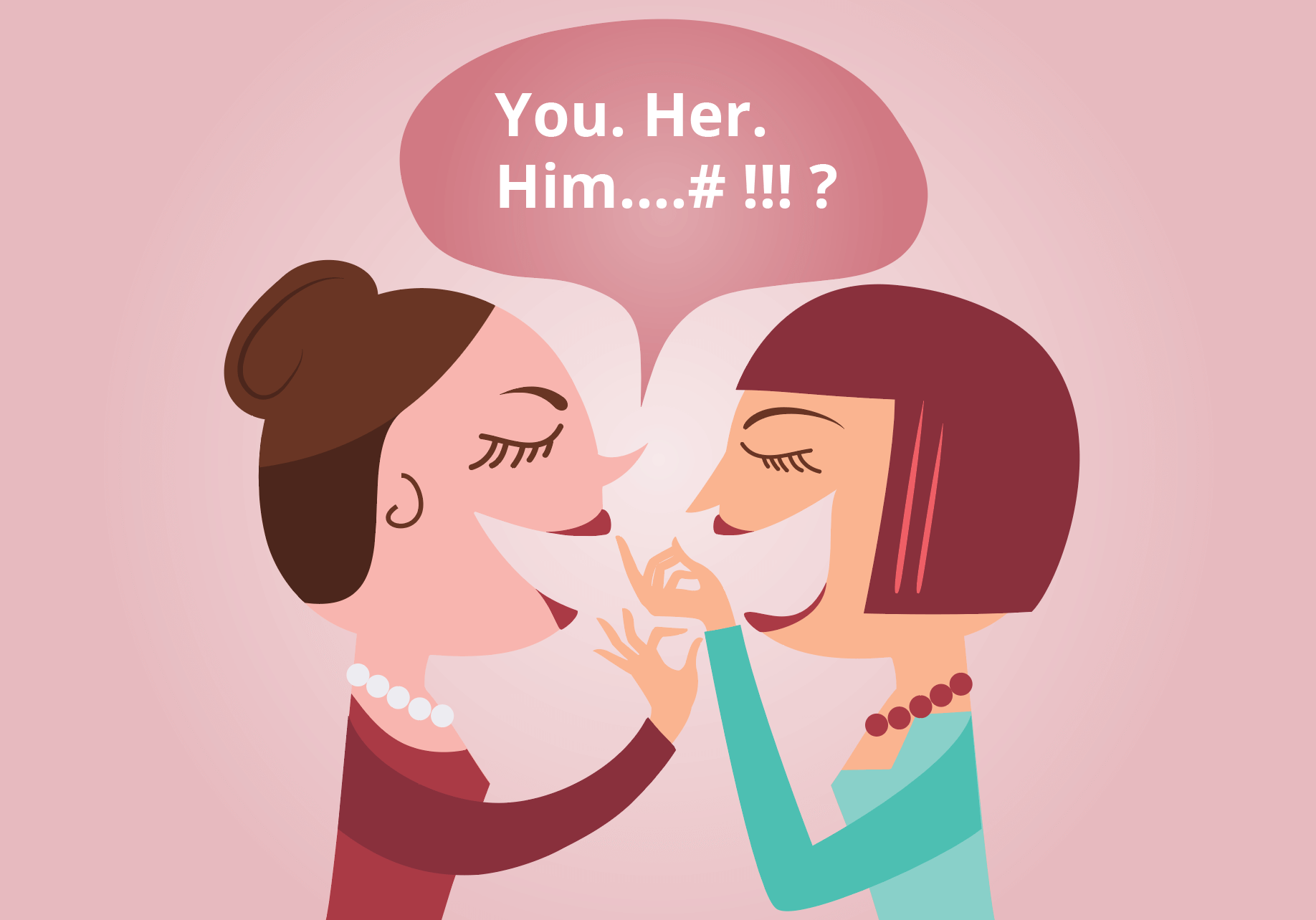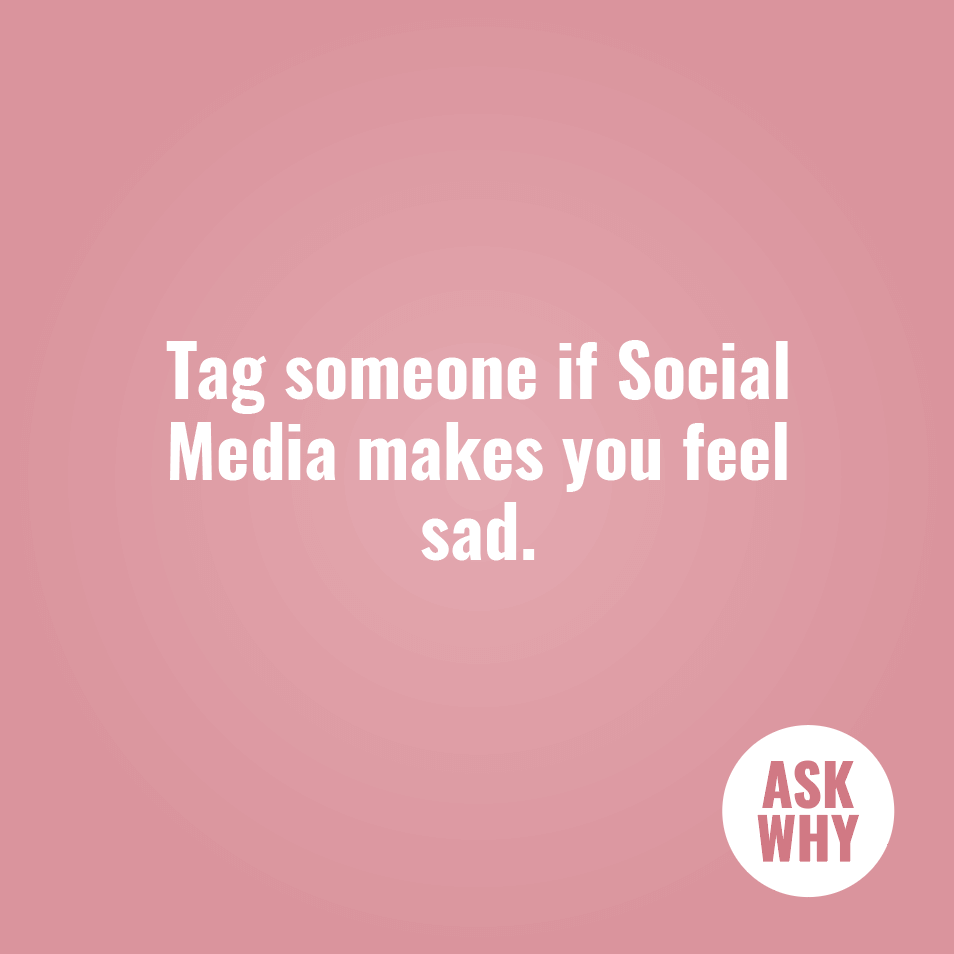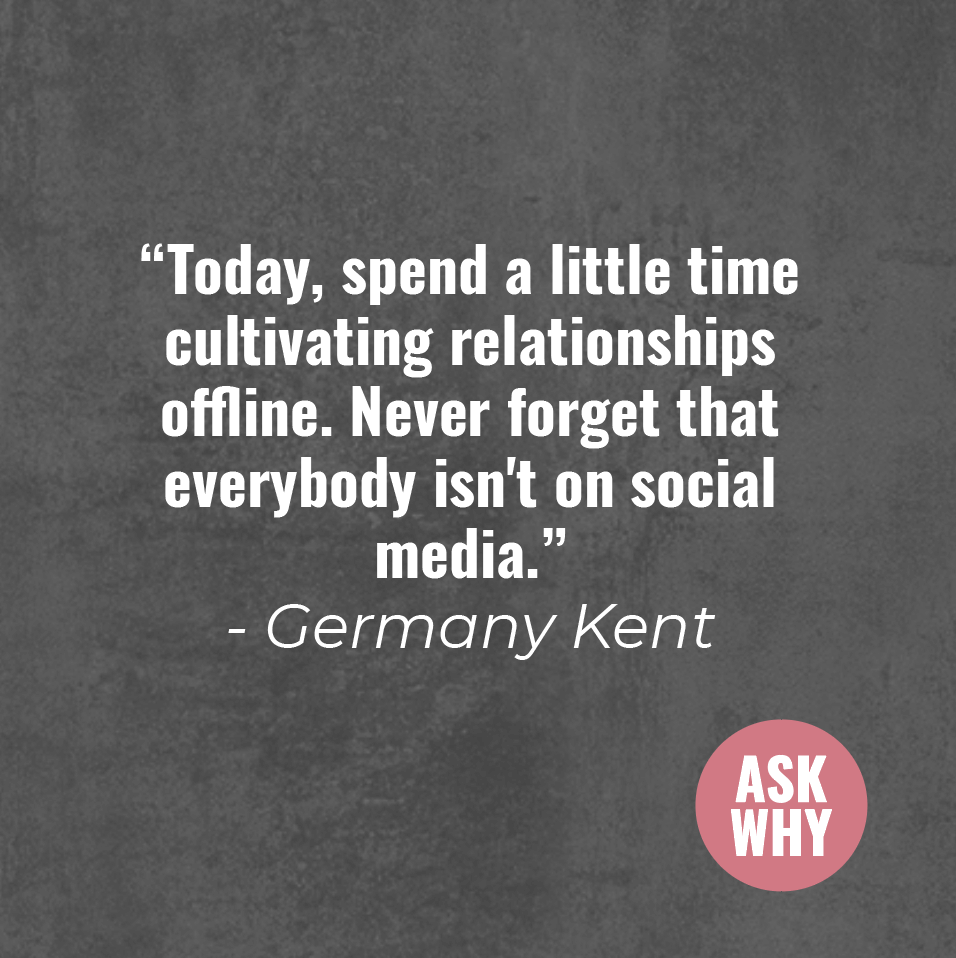Born A Bitch? 3 Theories Explaining Why Women Judge And Get Judged
12
JUNE, 2019
Judgment
Social Psychology
Social Media Bullying
Gender
“When you judge others, you do not define them, you define yourself.” -Earl Nightingale
Rarely do we judge others when they are around. It makes us feel uncomfortable and goes against our cultural code that tells us to be friendly and respectful to each other. But when we are comfortably anonymous, such as when we are sitting behind a screen or tapping on our phones, our moral standards seemingly vanish.
Lady Gaga experienced this first-hand in 2017 when she delivered a remarkable 13-minute performance at the Super Bowl. Kicking off the performance by gliding above the field in a harness, she then safely landed on the stage where she showcased the full range of her vocal talents and dazzled the audience with dance choreography that would have made Michael Jackson proud. Instead of focusing on Gaga’s achievement, however, it was her belly that grabbed people’s attention. Within minutes, tweets flooded the internet, judging Gaga for a little bit of body fat:

„Lady Gaga needs to work on her abs, all I can look at is her belly flop around“ Twitter User
I wish I could say that I wasn’t aware of her little tummy at the time, but sadly, I was. I am so used to seeing perfectly lean bodies on stage, on posters, or basically everywhere, that for a brief moment, I felt entitled to judge her. I judged a woman whose body doesn’t 100% fit into the narrow definition of the perfect idealized Western female body.
Ironically, with an average BMI of about 29-31, it’s safe to say that a vast number of Americans are overweight. A tiny bit of belly fat shouldn’t be worth mentioning, yet it made the news. And I was left to wonder whether a male belly would have received the same attention as Gaga’s.

Gaga’s example is not an exception. Most women admit that they frequently have to endure judgmental looks and gossip, feeding into their struggles with low self-esteem and body image. Contrary to the tweet above, which claims that “guys making fun of Lady Gaga’s muffin top [are] the reason why girls have so many body image issues,” several studies suggest that women might actually be their own worst enemy when it comes to feeling confident.
“Guys making fun of Gaga’s “muffin top” is the reason why girls have so many body image issues” Twitter User

Social Media Addiction – 4 Reasons You Can’t Get Off Social Media
Women’s Preferred Point of Attack is Gossip
I used to have a roommate whom I’m happy not to call my roommate anymore. Whenever I did something she didn’t approve of, such as meeting a mutual friend without telling her, she would punish me the next day by either ignoring me or by going to our mutual friend and gossiping about me. There was not a single instance where she came to me to tell me why she was upset.
The uncomfortable reality is that women have a reputation for being “bitchy.” Bitching means to talk badly of a person behind their back; also referred to as gossip. Gossip is a form of indirect aggression or passive-aggressive behavior (PAB), including behaviors “such as criticizing a competitor’s appearance, spreading rumors about a person’s sexual behavior and social exclusion” (source). For most women, PAB is their primary means of expressing anger or dealing with conflict. In fact, studies have found that evolutionarily, historically, and cross-culturally, there has been a clear difference in aggressive responses between the sexes, with women choosing gossip as their preferred first point of attack, while men prefer to engage in direct confrontations (source).
As a result, many women can have a distrustful or cold attitude towards one another. But the question remains: why would females want to engage in a behavior that makes them dislikable?
In the following sections, I’ll introduce three theories that might help explain why women often get judged and judge others.


Theory #1: I judge you because I don’t believe in myself
The way we learn to view ourselves is through the eyes of others. Western society told women for a long time that they are inherently different from and less than men, with fewer rights and fewer possibilities.
Just 100 years ago, women in Western countries were not allowed to vote or get divorced. The independent female worker emerged during the late 19th century and only came into her own during the 1930s and 40s, fueled by a shortage of men from the Second World War. Before that, women were largely financially dependent on a man. Fast forward 100 years. After many protests, legal obstacles, and slow changes, women now finally can work, vote, choose whom to marry and whether to divorce or not.
Despite this progress, many women still feel overshadowed by their male counterparts. To balance out any form of inequality, governmental institutions and other organizations have attempted to grant women special privileges over men, such as exclusive scholarships or business funding.
Good intentions aside, receiving special privileges often perpetuates the stereotype that women are a low-power group, which can potentially lead to feelings of being inherently less valuable and less capable than men. If women buy into this message, some of them inevitably will feel a sense of injustice and look for someone to blame.
Ironically, rather than taking the anger and pain of perceived injustice out on the “superior group,” women tend to take it out on people from their own group. That’s because other females are considered to be a barometer for how well they are doing themselves. And there is nothing more threatening to their self-esteem than being surpassed by another female who doesn’t play by the “rules.”
The unwritten rules say that females are expected to “blend in” rather than stand out. If another woman refuses to do so, she becomes a target because other women often read an inherent sense of superiority into her non-conformity (source). If they see another woman — a new female colleague, for example — exhibiting “male” characteristics, such as assertiveness or ambition, they judge her.
They judge her because they perceive her as a threat to their already precarious self-esteem. They judge her because it pains them to see this woman do what they denied themselves. They judge her because they chose to believe that they are less valuable and less capable. They judge her because they kept themselves small and didn’t fulfill their own potential.
And what they denied themselves, they don’t want others to have, either.
THEORY #2 – I judge you because I need a boost in self-esteem
According to research professor Brené Brown, a woman’s primary source of shame is her body. Brown says that society expects women to be perfect, do things well, and simultaneously look good while doing it. If they don’t, they “sure as hell are going to get judgmental looks.” (source) Ironically, when a woman looks too good, she is also likely to get judgmental looks (and probably some unwanted attention) from the other sex, too.
In fact, psychologist Dr. Sarah Riley found that about 53 percent of women said they received looks from other women they considered to be judgmental, leading to the conclusion that women mainly “judge each other on factors like appearance” (source).
Taking that into account, it’s not hard to see how women became so self-critical of their appearance. Unfortunately, this extreme form of self-awareness often leaves women feeling anxious and envious of others. Instead of acknowledging these feelings appropriately, however, most women turn on themselves, developing negative self-talk such as “you are not good enough.” Psychologist Patricia O’Gorman says that this kind of negative self-talk leaves “us to doubt ourselves and also allows us to begin to judge other women using the same harsh standards that society imposed on us, reinforcing their societal messages and self-talk.” (source)
A judgment might therefore not be so much about the other person as it is about the act of judging itself. When a woman looks at another woman, she likely sees a version of herself — and with that all her unwanted parts. Thus, the other woman serves as a constant reminder of her own imperfections.
But as we all know, achieving perfection is mission impossible. In an attempt to make themselves feel better about their constant failure, many women turn to judgment as a tool to boost their self-esteem.
For example, they judge another woman who they perceive as “beneath” them to make themselves feel better about themselves.
“Ugh, why is that woman walking around in such short pants that show off her cellulite!” (Translation: “I don’t feel great about my own legs, and it makes me feel a little better to judge a woman who appears to be struggling with cellulite more than I do.”)
Or they judge someone they perceive as superior to them to protect their self-esteem and establish a feeling of fairness in the world. “She has a great figure, but she probably doesn’t eat anything, so who would want that?” (Translation: “I wish I could have her body, but saying that she doesn’t eat makes me feel because at least I enjoy food.”)
Unfortunately, judging someone else to boost one’s own self-esteem is like taking a pill for a headache when you have a brain tumor. It only works short-term and doesn’t get to the root of the problem.
Theory #3 – I judge you, therefore I procreate
When it comes to the question about the meaning of life, no one will have a more simplistic answer than an evolutionary biologist: procreation. After all, the ability to procreate is what defines a living being and ensures a species’ ongoing survival (a mass extinction event notwithstanding).
But how could the desire to procreate possibly explain why women prefer to engage in PAB?
First, when thinking in terms of the “egoistic gene,” engaging in PAB significantly increases a woman’s reproductive success by reducing the potential of physical harm. Back in the day when hunting was still crucial to the tribe’s survival, men had to expose themselves to great physical dangers to provide. Women, on the other hand, remained home to raise and protect their offspring.
Not having to fight against animals didn’t mean that there were no conflicts, however. Contrary to the stereotype of the nice girl who wouldn’t hurt a fly, men and women actually exhibit equal amounts of aggression — that is, when relational aggression such as social exclusion and gossip are taken into account. Furthermore, men and women have been shown to experience equal amounts of anger (source).
Since women wanted to avoid direct aggression, they had to find a safer way to deal with conflicts. Indirect aggression, such as gossiping, might have been the perfect solution, helping them to carry out conflicts while staying safe and ensuring their offspring’s survival.
Having offspring is the result of a man and a female having sex, and nothing is as sure to produce conflict as sexual rivalry. It makes sense, then, that romantic rivalry is one of the main reasons why women engage in PAB.
„Perhaps the strongest evidence that boys lie at the heart of female competition is the terms used to insult others. The same epithets appear frequently in accounts of girls’ fights: ‘slag’, ‘slut’, ‘whore (ho)’ and ‘tart’ (…). The second most common insults are about a girls’ appearance (‘ugly’, ‘fat’).“ (source)
The problem is that girls often tie their own self-worth to the quality of the boys they can attract (source). Unfortunately, when “our value is tied to the people who can impregnate us, we turn on each other.” (source)
Women want to make sure that they get the best man possible, and that means setting themselves apart from the “competition.” According to a study published in xxx, women try to enhance their mating chances by engaging in self-promotion and the derogation of rivals.
Self-promotion is described as the intentional display of physical attractiveness, such as wearing make-up or sexy clothing. Looking too good, however, triggers an alarm system in other females, thereby turning the self-promoter into a target.
That’s because other females perceive physically attractive females as provocative and as sexual rivals. As many as 85% of women would not allow another attractive woman to spend time alone with their boyfriend, often causing feelings of psychological pain from social exclusion on the receivers’ end (source).
Thus, with the first strategy being too obvious and too risky, many women might prefer to engage in a more obscure strategy to get the male attention they want.
To enhance their mating chances, women often derogate their competitors by making them “seem less attractive or less appealing to members of the opposite sex.” This is “typically achieved by disparaging the competitor’s appearance or by spreading rumors that question the fidelity or level of promiscuity of a rival (…) because males value these qualities in their partners.”
In summary, the evolutionary perspective argues that female judgment, most often in the form of gossip, developed as a strategy to enhance a female’s reproductive chances. Not only did it help women undermine their competition, but it also helped them carry out conflicts without engaging in direct aggression.
Conclusion – Are We Born To Be Bitches?
So, women are bitches, and men are angels? Not exactly. Men engage in plenty of toxic behavior on their own, but they prefer to challenge one another in direct confrontations and then go share a friendly beer. You probably know this from cowboy movies where men challenge one another with a gunfight. Throughout history, women were hardly ever handed a weapon, so naturally, they had to develop their own. And they sure did. It’s called the gossip-gun.
Sadly, engaging in gossip doesn’t create an environment in which females can thrive, supporting the hypothesis that women might be their own worst enemies.
If we keep on judging each other, we keep fueling the fire. Sadly, it seems that being critical of another’s body — the main point of attack when it comes to judging — has become so normalized in our society that women don’t think twice when they engage in it. Yet maybe we should: people who’ve been body shamed are 32% more likely to report body shaming others, thus creating a self-perpetuating loop (source).
Where Does It Stop?
Maybe it stops with you.
Understanding why you might judge other females can be an opportunity for you to learn more about yourself. When you judge another person, it reveals what you deeply care about, who you care about, and what you are insecure about. It gives you insights into your most vulnerable you.
Perfection is impossible, and there will always be someone more beautiful, more successful, or more confident than you. But remember, you rarely see the whole picture of another person. You only see snapshots of their life, and mostly only the positive ones. Would you buy a car when all you knew about it was its color? Probably not. So why judge a human being when all you know is the surface of their life?
You probably know all too well that judging another woman can hurt her emotionally. And most likely she doesn’t need you as a judge, because she already has the harshest judge right by her side: herself. Just like you do.
If you find yourself constantly judging other people, try the following for a week: only look for the positive things in other people, and if possible, point them out. Verbalize them, tell the other person. If it’s a person you hardly know, try to strike up a conversation with her. The more you know about her, the less you will view her as an object and the more as what she deserves to be viewed as: a human being who is vulnerable.
You might be surprised at how happy you can make another person. And if you stick with it long enough, your thought process will slowly change from a judgment-focused mentality to a positive one.
Want New Articles Before They Get Published?
Subscribe to Our Awesome Newsletter.



